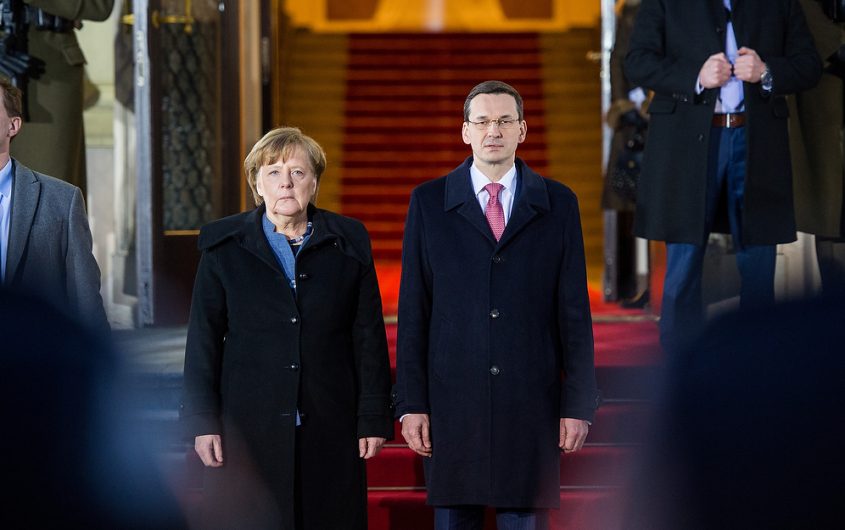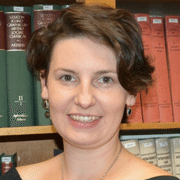
Kancelaria Premiera via Flickr
Marking the Polish-German Treaty of Good Neighborhood and Friendly Cooperation

Lily Gardner Feldman
Senior Fellow
Dr. Lily Gardner Feldman is a Senior Fellow at AICGS. She previously served as the Harry & Helen Gray Senior Fellow at AICGS and directed the Institute’s Society, Culture & Politics Program. She has a PhD in Political Science from MIT.
From 1978 until 1991, Dr. Gardner Feldman was a professor of political science (tenured) at Tufts University in Boston. She was also a Research Associate at Harvard University’s Center for European Studies, where she chaired the German Study Group and edited German Politics and Society; and a Research Fellow at Harvard University’s Center for International Affairs, where she chaired the Seminar on the European Community and undertook research in the University Consortium for Research on North America. From 1990 until 1995, Dr. Gardner Feldman was the first Research Director of AICGS and its Co-director in 1995. From 1995 until 1999, she was a Senior Scholar in Residence at the BMW Center for German and European Studies at Georgetown University. She returned to Johns Hopkins University in 1999.
Dr. Gardner Feldman has published widely in the U.S. and Europe on German foreign policy, German-Jewish relations, international reconciliation, non-state entities as foreign policy players, and the EU as an international actor. Her latest publications are: Germany’s Foreign Policy of Reconciliation: From Enmity to Amity, 2014; “Die Bedeutung zivilgesellschaftlicher und staatlicher Institutionen: Zur Vielfalt und Komplexität von Versöhnung,” in Corine Defrance and Ulrich Pfeil, eds., Verständigung und Versöhnung, 2016; and “The Limits and Opportunities of Reconciliation with West Germany During the Cold War: A Comparative Analysis of France, Israel, Poland and Czechoslovakia” in Hideki Kan, ed., The Transformation of the Cold War and the History Problem, 2017 (in Japanese). Her work on Germany’s foreign policy of reconciliation has led to lecture tours in Japan and South Korea.

Olga Barbasiewicz
Jagiellonian University
Dr. Olga Barbasiewicz is an Assistant Professor in the Institute of Middle and Far East Studies, Faculty of International and Political Studies, at Jagiellonian University in Krakow. She holds her Ph.D. and M.A. in Political Science as well as M.A. in Japanese Studies. She held the JASSO scholarship and studied International Relations at Tsukuba University in Japan. In her current research, she focuses on memory politics and Japanese-Korean relations in regard to the alliance with the U.S.

Urszula Pękala
Dr. Urszula Pekala is a Catholic theologian and a researcher at the Leibniz Institute of European History in Mainz. Her current research focuses on German-French and German-Polish reconciliation after WWII.
On June 17, 1991, the Federal Republic of Germany and the Republic of Poland signed a treaty vowing to be good neighbors: to respect national boundaries and to contribute to peace in Europe by pursuing joint reconciliation efforts. It was an important step for the painful relationship between the two countries, but also for reconciliation efforts more broadly.
Reconciliation has long been a focus of AGI’s work. On this 28th anniversary of the German-Polish treaty, AGI is pleased to highlight three pieces that show the importance of reconciliation for the two countries, the political dynamics that are shaped by reconciliation efforts, and how this relationship can be viewed with a broader lens of reconciliation globally.
Do Disputes over History Define German-Polish Relations?
by Dr. Lily Gardner Feldman
At a Crossroads? German-Polish Reconciliation in Light of the Recent Changes in the Polish Government
by Dr. Urszula Pękala







